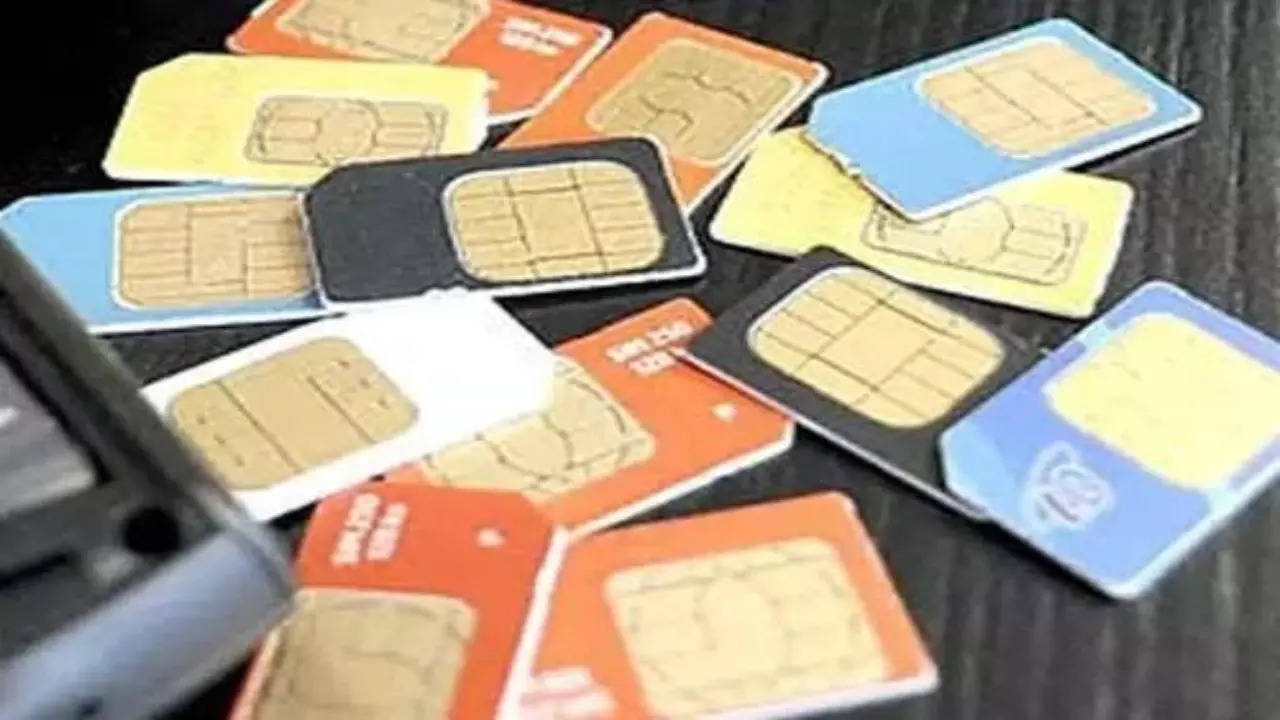NEW DELHI: The government on Monday took key steps to overhaul and modernise the archaic Indian Telegraph Act of 1885 and related legislations, looking to create a robust security apparatus to protect critical mobile networks from cyberattacks and other illegal break-ins, while stipulating a penalty of Rs 50,000 for unsolicited messaging to users, that will go up to Rs 2 lakh per message for repeat offenders who also face the threat of suspension of their telecommunication services.
‘Telcos can’t sell SIMs without biometric-based identification’
The much-awaited Telecommunications Bill, 2023, tabled in the Lok Sabha by communications minister Ashwini Vaishnaw, is billed as a major reform push and seeks to usher in a liberalised regime for heralding satellite-based telephony in the country by giving access to spectrum on an administrative basis, unlike the regular practice of auctions for terrestrial airwaves. This will make it easier for companies such as Elon Musk’s Starlink, Jeff Bezos’s Project Kuiper, and Bharti’s OneWeb to begin satellite communications services in the country. On Monday, TOI had exclusively written about this and other provisions.
Communications services through over-the-top (OTT) players such as WhatsApp, Facebook messenger, Instagram chat, Apple’s Facetime, Skype and Microsoft Teams have been kept out of the legislation, despite earlier plans to bring the companies under a licensing regime that would have also enabled the government and law-enforcement agencies to monitor their services in line with similar checks on telecom companies. The government is of the view that any regulatory set-up for the online services should be handled by the IT ministry in the forthcoming Digital India Bill that aims to overhaul the existing IT Act.
Government sources said that there are four critical areas of reform, including those related to licensing, spectrum, right of way and dispute resolution.
The Telecommunications Bill, which also seeks to replace the Indian Wireless Telegraphy Act, 1933 and the Telegraph Wires (Unlawful Possession) Act, 1950, also promotes efficient use of spectrum, and its re-farming or harmonisation to make optimum use of the valuable resource. It gives powers to the government to terminate the allotment of spectrum that remains unutilised for insufficient reasons, again to ensure that the airwaves are utilised and do not lie idle.
However, certain provisions in the bill that empower the government with overriding powers in cases of natural calamity or threats to national security raised concerns in certain sections, although the government said these have been the norm and similar to the regime across many countries. These include provisions of collection, analysis and dissemination of traffic data that is generated, transmitted, received or stored in telecommunication networks. The government said this is necessary to protect and ensure cybersecurity of telecommunication networks and services.
To prevent illegal sale of mobile connections, the bill stipulates that telecom companies cannot sell SIM cards without identifying the person through use of any verifiable biometric-based identification.
For user protection, the bill stipulates that the prior consent of users for receiving certain specified messages or class of specified messages needs to be taken in case of ‘specified message’ that offer, advertise or promote goods, services, interest in property, business opportunity, employment opportunity or investment opportunity (or else risk penalties).
‘Telcos can’t sell SIMs without biometric-based identification’
The much-awaited Telecommunications Bill, 2023, tabled in the Lok Sabha by communications minister Ashwini Vaishnaw, is billed as a major reform push and seeks to usher in a liberalised regime for heralding satellite-based telephony in the country by giving access to spectrum on an administrative basis, unlike the regular practice of auctions for terrestrial airwaves. This will make it easier for companies such as Elon Musk’s Starlink, Jeff Bezos’s Project Kuiper, and Bharti’s OneWeb to begin satellite communications services in the country. On Monday, TOI had exclusively written about this and other provisions.
Communications services through over-the-top (OTT) players such as WhatsApp, Facebook messenger, Instagram chat, Apple’s Facetime, Skype and Microsoft Teams have been kept out of the legislation, despite earlier plans to bring the companies under a licensing regime that would have also enabled the government and law-enforcement agencies to monitor their services in line with similar checks on telecom companies. The government is of the view that any regulatory set-up for the online services should be handled by the IT ministry in the forthcoming Digital India Bill that aims to overhaul the existing IT Act.
Government sources said that there are four critical areas of reform, including those related to licensing, spectrum, right of way and dispute resolution.
The Telecommunications Bill, which also seeks to replace the Indian Wireless Telegraphy Act, 1933 and the Telegraph Wires (Unlawful Possession) Act, 1950, also promotes efficient use of spectrum, and its re-farming or harmonisation to make optimum use of the valuable resource. It gives powers to the government to terminate the allotment of spectrum that remains unutilised for insufficient reasons, again to ensure that the airwaves are utilised and do not lie idle.
However, certain provisions in the bill that empower the government with overriding powers in cases of natural calamity or threats to national security raised concerns in certain sections, although the government said these have been the norm and similar to the regime across many countries. These include provisions of collection, analysis and dissemination of traffic data that is generated, transmitted, received or stored in telecommunication networks. The government said this is necessary to protect and ensure cybersecurity of telecommunication networks and services.
To prevent illegal sale of mobile connections, the bill stipulates that telecom companies cannot sell SIM cards without identifying the person through use of any verifiable biometric-based identification.
For user protection, the bill stipulates that the prior consent of users for receiving certain specified messages or class of specified messages needs to be taken in case of ‘specified message’ that offer, advertise or promote goods, services, interest in property, business opportunity, employment opportunity or investment opportunity (or else risk penalties).
